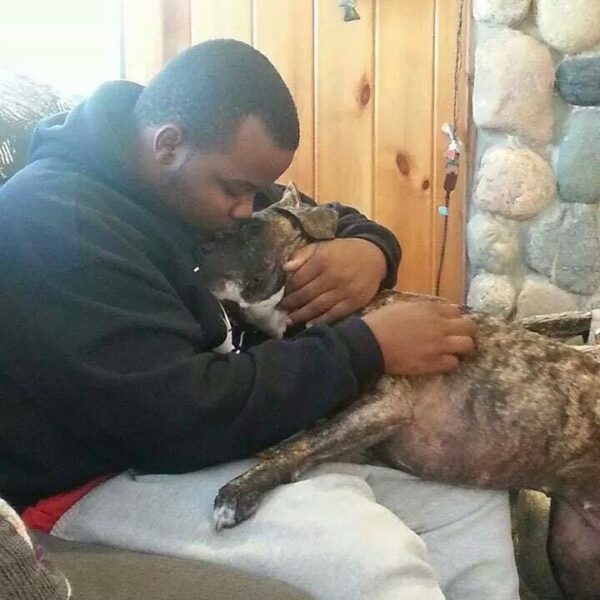Sarah Virginia Carr Browder was working on her certification as a hair stylist at Leon’s School of Beauty in Greensboro, NC. She was 28 years old, beautiful, talented, vivacious, and socially active. She had a wide circle of friends in Greensboro where she attended school and worked, and among classmates she had known at Appalachian State University and Forsyth Country Day School in Lewisville, North Carolina. She was close to her parents who lived not far away in Winston-Salem, North Carolina, and to her sister and her twin brother, who had affectionately nicknamed her “Sassy.” She benefited from the unwavering support of her family. She had dated several young men, but was of the opinion that she would probably never marry.

Then her life took a dramatic turn. Sarah encountered an old acquaintance, a charming young Marine with whom she quickly fell in love. They bonded rapidly, sharing stories of life’s joys and trials. She knew that he suffered from Post Traumatic Stress Disorder, a result of both his tour of duty in Afghanistan and of the painful loss of his closest friend in childhood. She felt nothing but compassion, never fear, when he showed signs of distress. After a few months of courtship, she married him. She continued her studies in order to complete her degree while he continued to serve at Camp Lejeune, North Carolina. They saw each other almost every weekend, making plans for the approaching time when she could join him and set up a household with him near his base.
Awareness of the patterns that domestic violence situations may follow is essential if we wish to eradicate it.
A few months into the marriage, the beauty of Kirk and Sarah’s relationship began to pale. His telephone calls became inconveniently numerous, coming during classes, during work hours, and at all hours of the night. The context of the conversations became tense, visits on the week-ends sometimes ending with arguments about what clothing Sarah wore, whom she was seeing when Kirk was not there, why she was not always available to receive his incessant, demanding calls. He pressured her to cut off her friends, especially male friends. He increasingly reported to her that his military officers were finding cause to discipline him for one infraction after another, that he was being singled out for unfair punishment, that he was penniless, and that the medical treatment he was receiving was not adequate. Sarah became concerned about the amount of money that Kirk seemed to require, began to suspect that he was abusing his medication and perhaps even illicit drugs, and disapproved of the lack of respect with which he had begun to treat her. There was a growing sense of distrust in their relationship. Sarah asked for her parents’ advice about how to help Kirk and how to address his emerging tendency to attempt to control every facet of her life. Aware that something was amiss, but not knowledgeable about the signs exhibited by an abuser, Sarah and her family did not wish to overreact or to be unkind. By the end of Sarah’s first year of marriage, she began to confide in her mother that she was afraid she could not make the marriage work and that she was giving Kirk an ultimatum that he must get better help, stop the abusive tirades, and treat her with kindness and respect if he wished to remain in the marriage.
The week that Sarah completed her training at Leon’s School of Beauty, Sarah and Kirk bought a car to replace the one Kirk had totaled. Sarah’s parents supplied the down payment for the new car, hoping to ease her transportation problems, since her only transportation was that provided by her friends. She had intended to use the car while she was in Greensboro and he was at Camp Lejeune. Nevertheless, she submitted to pressure from Kirk and arranged for her mother and Kirk’s mother to help her take the car to him on Thursday. She then returned to Winston-Salem, intending to spend the weekend studying for her board exams, which were to take place on Monday. On Friday, Kirk decided that he wanted to spend the weekend with Sarah, so, against her wishes, he drove the new car back to Winston-Salem.
Sarah’s life on this earth continues to have purpose.
Sarah’s mom had a tense conversation with Kirk and Sarah before they went out on Saturday of that weekend. Feeling a sense of unease about Sarah’s safety, she asked that there be no consumption of alcohol while they were out on the town that night. That was the last conversation she had with her daughter and son-in-law. A friend spent Saturday evening with Kirk and Sarah and reported that they argued about Kirk’s abusive behavior of Sarah, about Kirk’s erratic driving, and about the handgun that he was displaying to other people in a downtown bar. According to that friend, after the three of them arrived at Kirk’s parents’ house very late Saturday night, the arguing continued while Kirk and Sarah were locked in a bedroom. Sarah’s cell phone was dead, so she had no way to call for help when and if she grew frightened. The friend did become frightened and fled the home while the fighting continued. Sarah had told Kirk that he must change his behavior or she was leaving the marriage. Escaping from the locked bedroom, Sarah ran across the street from the house, and, after being pierced through the face, spine, and shoulder by bullets fired from Kirk’s handgun, she fell to the ground paralyzed from the neck down. Kirk then killed himself in front of his parents’ house in the early morning hours of Sunday, September 23, 2012.
A newspaper delivery person heard the shots fired and soon saw Sarah lying on the sidewalk, unable to move any part of her body other than her head. The lady was afraid, but she stayed with Sarah and consoled her until the police and ambulance arrived. Sarah lingered in the Intensive Care Unit for four days, until Thursday, September 27, 2012, surrounded by her family. Her family and minister consoled her as she faced death. She chose to donate her organs to the Carolina Donors’ Services. Her life was celebrated at St. Paul’s Episcopal Church in Winston-Salem and she is buried in Dalton Memorial Garden next to the church in which she grew up.
Those most likely to hurt others, those with a history of violence or of instability, and those who suffer from mental and emotional dysfunction should not have easy access to guns.
Though Sarah was open with her parents about the challenges she was experiencing in her relationship with Kirk, neither she nor her parents ever entertained the possibility that Kirk would harm her physically. Awareness of the patterns that domestic violence situations may follow is essential if we wish to eradicate it. Young people must receive instruction in order to avoid it or to extricate themselves from it. Our laws regarding access to guns must be tightened for our own safety. Those most likely to hurt others, those with a history of violence or of instability, and those who suffer from mental and emotional dysfunction should not have easy access to guns. Instead, those people should be able to easily receive the help they need to repair their dysfunction.
Sarah’s life on this earth continues to have purpose. Hundreds of people who loved Sarah for her sensitivity, kindness, intelligence, and creativity and for her caring nature, have sought ways to make sense of her loss. Her death has rallied family, cherished friends, and strangers who have been touched by what she endured. Sassy’s Team is a group of caring people who have raised funds to combat domestic violence, part of a nation-wide program called Walk-a-Mile-in-Her-Shoes. Family Services of Forsyth County, North Carolina has sponsored the Walk-a-Mile event for several years, and Sassy’s Team has participated during the two events since her death and will continue their participation to fight domestic violence. Sarah’s family will continue to honor her memory by finding additional avenues for contributing to the cause. The horror of her death and the beauty of her life have raised awareness, have encouraged abused individuals to seek help, and have inspired both organizations and individuals to offer support; one can hope that some abusers may have been motivated to restrain themselves or to seek help. Sarah’s legacy lives on.





